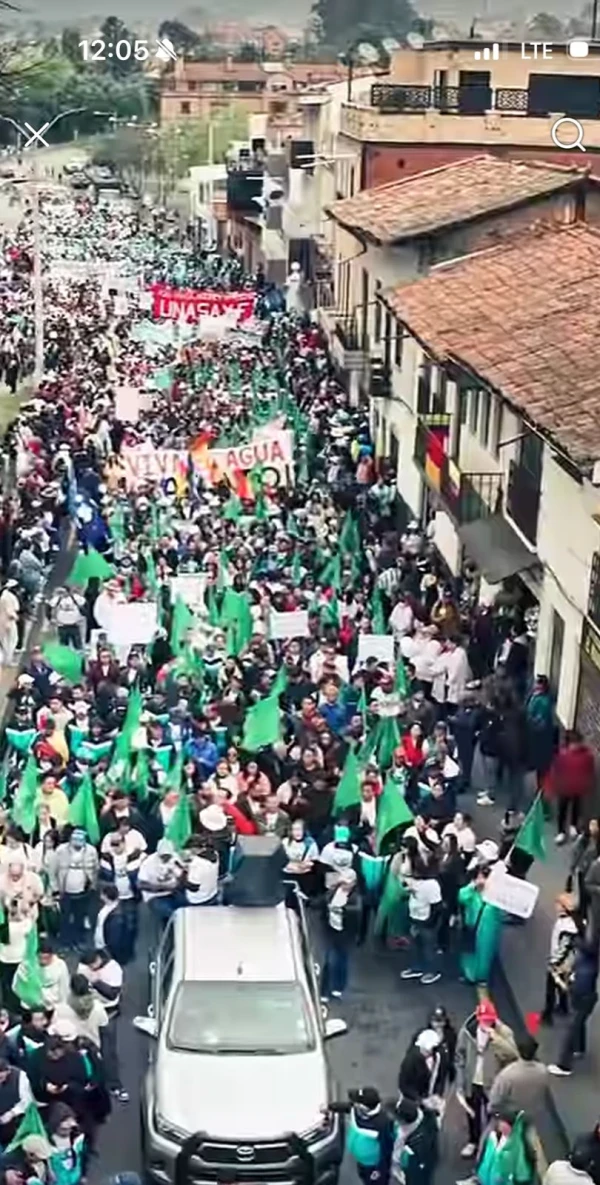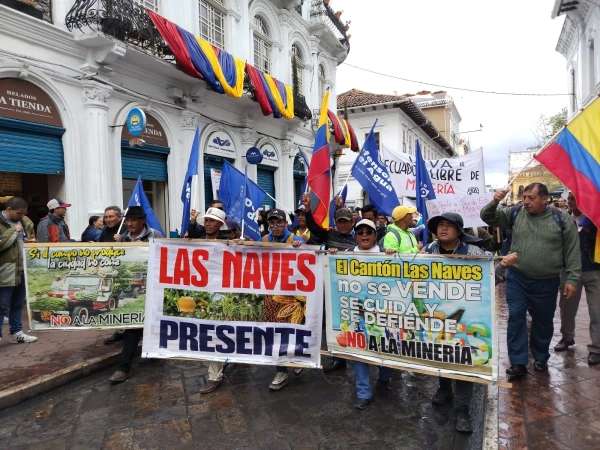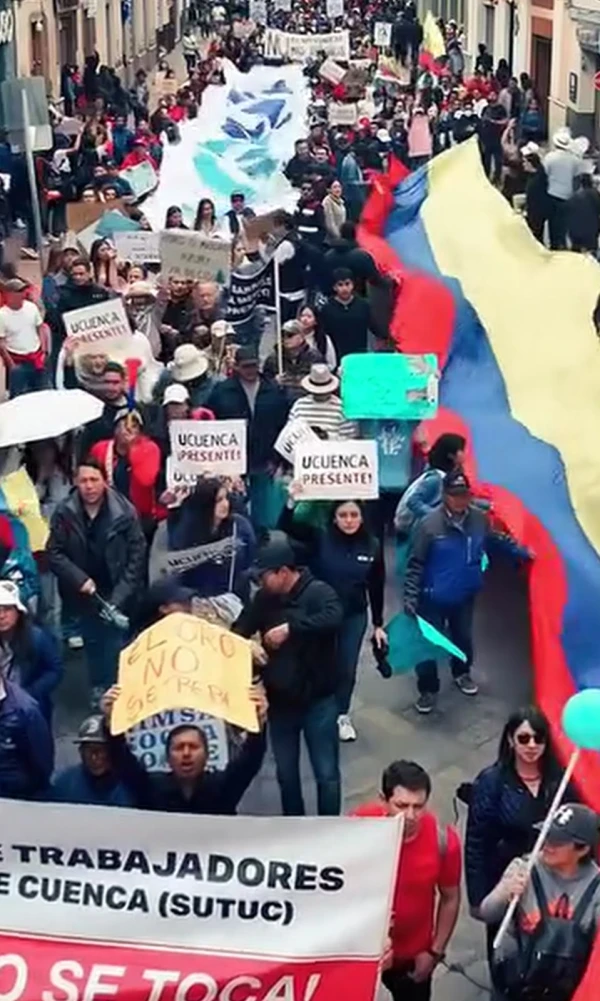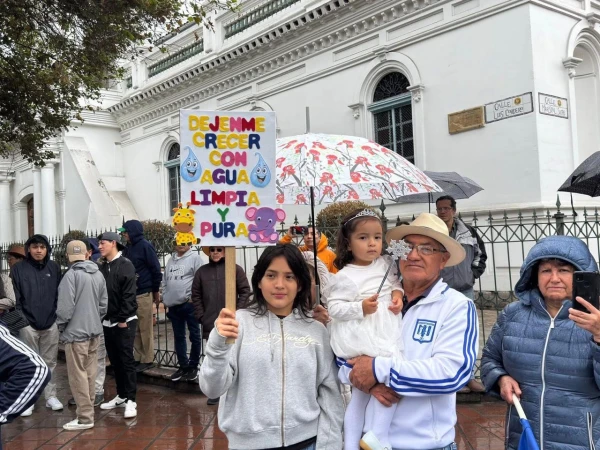More than 100,000 people marched through the water in Cuenca and, at a posterior mass, Cardinal Luis Cabrera, president of the Ecuadorian Episcopal Conference, raised four essential principles to take into account mining.
According to the Ecuadorian newspaper Expressthe march was held on Tuesday, September 16 to oppose the Loma Largo mining project in the town of Quimsacocha, where the Canadian Minera Dundee Precious Metals He received an environmental license for the exploitation of gold.
Receive the main news of ACI Press by WhatsApp and Telegram
It is increasingly difficult to see Catholic news on social networks. Subscribe to our free channels today:

The march was made from the Plaza de San Roque and toured almost three kilometers, in which the participants walked through the historic center until they reached the Plaza de San Francisco
In this context, the Federation of Peasant Organizations of Azuay (FOA) delivered a petition in the Provincial Court of Justice to ask that the measure that, they indicate, could end up contaminating the water consumed by the local population.
After the march, a Mass was held in the Cathedral of Cuenca and, at the beginning of it, the local archbishop, Mons. Marco Pérez, stressed that “the mining exploitation in these areas is an issue that must be treated with absolute seriousness from the legal, technical and environmental field, without falling into ideological, economic interpretations and political speeches that disorigate, divide and generate violence”.

“Just as today we reject irresponsible mining, we must also clear
4 principles against mining in Ecuador
Invited by Mons. Pérez, Cardinal Cabrera presided over the Mass and in his homily highlighted four principles “that help us to live fairly and solidary among us and with creation.”
1. Human life is worth more than natural and cultural goods
The Archbishop of Guayaquil said that “the life of each person is sacred, it is more important than any wealth, even that the most beautiful goods of creation. Temptation has been to put money or production over the person.”
Therefore, he continued, “no business, however profitable it may seem, can justify that the health, dignity or future of a people are put at risk.”

“A country can have immense natural wealth and an admirable culture, but if you neglect the lives of its citizens, especially the poor and vulnerable, it loses its ethical and spiritual foundation,” he added
2. Natural goods are at the service of all human beings
The cardinal also said that “the earth, water, air, the fruits of the countryside are not exclusive property of a few, but gifts of God for the whole human family.”
In that sense, “when a few take over these resources, they turn water into merchandise or contaminate rivers to obtain gold and other minerals, God’s justice is broken.”

3. The ethical value is above all legal, political and economic system
“Jesus, in the Gospel, reminds us that justice cannot be reduced to a simple legal procedure. A law can be unfair if it protects interests of a few and forgets the common good. An economic system can be ineffective if it destroys human life or nature,” the archbishop continued.
“Many times we are told that the law allows such a mining concession or that signed contracts justify the exploitation. But Jesus teaches us that not everything legal is fair, and that not everything profitable is ethical. The most important thing is to live with justice, solidarity and respect for creation.”
4. Governments have the moral and legal duty to defend the peoples and nature
Cardinal Cabrera said that “the rulers have the responsibility of protecting the weakest, ensuring social justice and taking care of the creation of any undue exploitation.” In addition, and “as believers, we must not only pray for those who govern, but also demand coherence and responsibility.”
To conclude, the purple Ecuadorian stressed that “we march because we believe that life is worth more than any wealth, that water is worth more than gold and all minerals and that a fair future will only be possible if we respect people and creation.”

